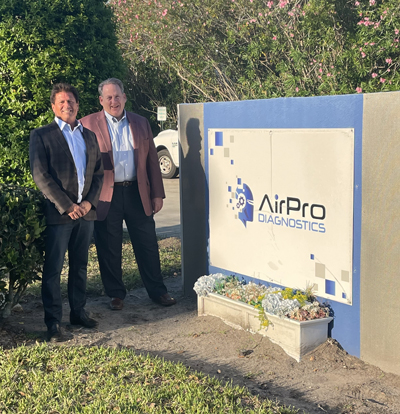MQ: I’ll reiterate, in case we do run into an anomaly with a particular vehicle, we can bring other technicians in to assist in and actually figure it out as a team, another reason for our high success rate of 97.7%. Because we stick with the vehicle for even the most difficult issues. We're there to help the shop, repair the vehicle. We're not there just to pull a code or claim a calibration was done and then send it on. We make sure to solve the problem quickly and precisely.
It’s not a good idea for shops to purchase equipment to do their ADAS themselves?
LM: We have had hundreds of shops tell us they purchased all the equipment and they don’t have the expertise on a given brand so they engage us. As mentioned earlier we can equip, train and assist shops to cost-effectively perform ADAS calibrations. It doesn’t make sense for shops to have tools and software for makes they don’t repair. We custom-tailor equipment solutions based on the shop’s historical workload.
Do you document every service as well, for purposes of accountability and transparency?
MQ: Yes, we record each and every screen session during the service, whether it's a scan, diagnostics or calibrations. We store all this in the cloud, if anyone ever questions what was performed, what version of the OE software was used, it’s available to our shops.
Have you been able to trim cycle time for your customers?
MQ: Absolutely. If you've been following industry reports, national average cycle time has almost doubled to almost 20 days. There are certainly some supply chain issues, but the acceleration of technology and the limited skills of shop technicians is contributing to cycle in a significant way. We have techs with 25-30 years’ experience on one brand. These types of specialists are not growing on trees. Shops can go it alone or utilize our remote services. AirPro shops enjoy on average two days less cycle time when pre-/post-scanning every vehicle.
The question is, do you have the ability to serve 45 brands and 550 models, which we are able to do? And when technology advances---which it does every year---how do you get the training? And then what do you do if you have a guy who is highly skilled and he quits, goes on vacation or is out sick? What do you do? Your whole operation can grind to a halt.










Ed Attanasio